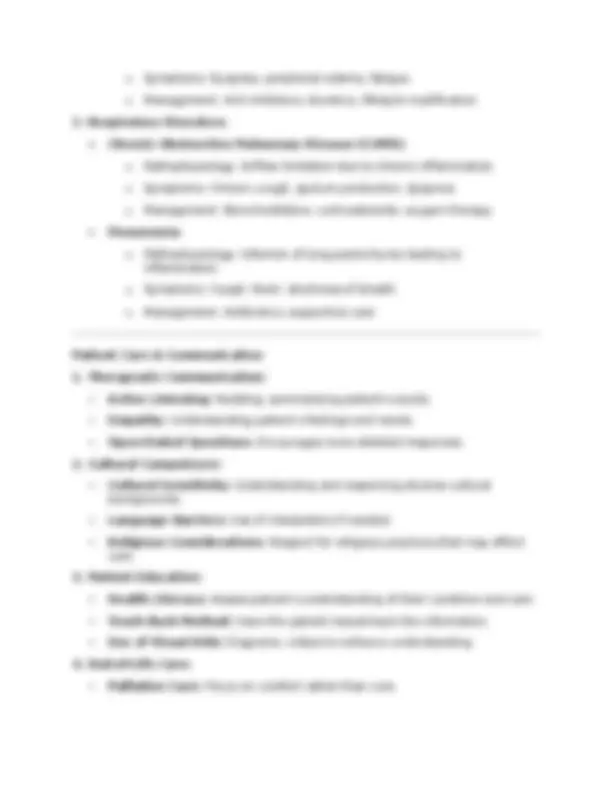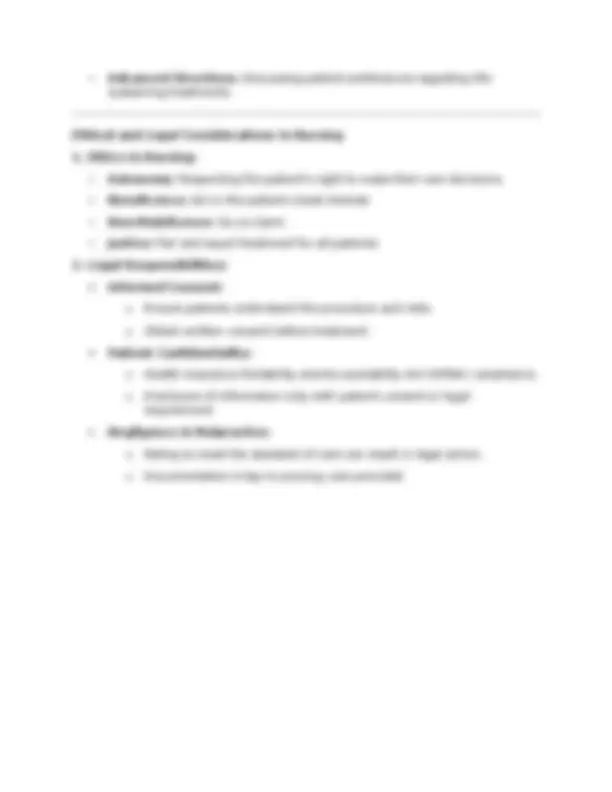




Study with the several resources on Docsity

Earn points by helping other students or get them with a premium plan


Prepare for your exams
Study with the several resources on Docsity

Earn points to download
Earn points by helping other students or get them with a premium plan
Community
Ask the community for help and clear up your study doubts
Discover the best universities in your country according to Docsity users
Free resources
Download our free guides on studying techniques, anxiety management strategies, and thesis advice from Docsity tutors
Topics to focus on during third year
Typology: Schemes and Mind Maps
1 / 4

This page cannot be seen from the preview
Don't miss anything!



Advanced Clinical Skills
1. Patient Assessment: Head-to-Toe Assessment: o Inspection: Skin color, symmetry, abnormalities. o Palpation: Temperature, moisture, turgor. o Auscultation: Lung, heart, bowel sounds. o Percussion: Identify organ size, tenderness. Vital Signs Monitoring: o Temperature (normal range: 36.5°C–37.5°C) o Heart Rate (normal: 60–100 bpm) o Blood Pressure (normal: 120/80 mmHg) o Respiratory Rate (normal: 12–20 breaths per minute) Glasgow Coma Scale (GCS): o Eye, verbal, motor response. o Scoring: 3 (deep coma) to 15 (fully awake). 2. Clinical Procedures: IV Cannulation: o Indications, contraindications. o Steps: Sterilize site, insert catheter, secure with dressing. Wound Care: o Aseptic Technique: Use sterile gloves, clean the wound from the center outward. o Types of dressings: Hydrocolloid, foam, alginate. **Pharmacology
Analgesics: o Example: Paracetamol, opioids. o Indications: Pain management. o Side effects: Nausea, drowsiness (opioids), liver toxicity (paracetamol overdose). Diuretics: o Example: Furosemide, spironolactone. o Indications: Hypertension, heart failure. o Side effects: Electrolyte imbalance, dehydration.
2. Drug Administration: Routes: o Oral, IV, IM, subcutaneous. Five Rights of Medication Administration: o Right patient. o Right drug. o Right dose. o Right route. o Right time. 3. Pharmacokinetics & Pharmacodynamics: Absorption: GI tract, bloodstream. Metabolism: Liver (first-pass effect). Excretion: Kidneys. **Pathophysiology
Advanced Directives: Discussing patient preferences regarding life- sustaining treatments. Ethical and Legal Considerations in Nursing
1. Ethics in Nursing: Autonomy: Respecting the patient’s right to make their own decisions. Beneficence: Act in the patient’s best interest. Non-Maleficence: Do no harm. Justice: Fair and equal treatment for all patients. 2. Legal Responsibilities: Informed Consent: o Ensure patients understand the procedure and risks. o Obtain written consent before treatment. Patient Confidentiality: o Health Insurance Portability and Accountability Act (HIPAA) compliance. o Disclosure of information only with patient consent or legal requirement. Negligence & Malpractice: o Failing to meet the standard of care can result in legal action. o Documentation is key to proving care provided.